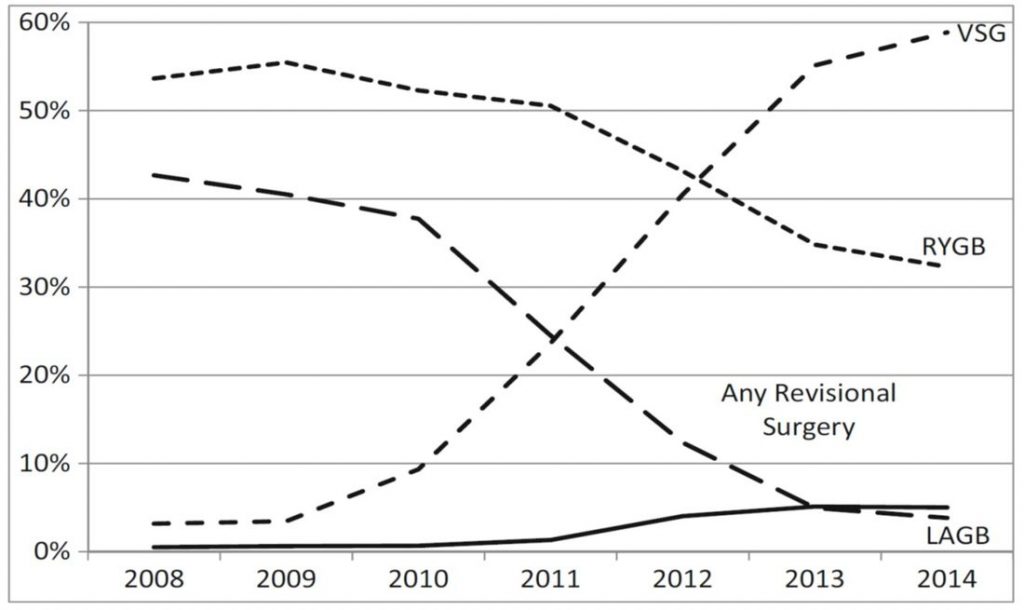What Is Weight Loss Surgery?
Weight loss surgery is also known as bariatric or metabolic surgery. It is the most effective long-term treatment modality for morbid obesity. It is a constantly evolving field of surgery and requires specific surgical training in order to perform it and remain up to date with current research and techniques. Weight loss surgery works by restricting the amount of calorie/food intake, restricting the amount of calories absorbed, or a combination of both.
Traditionally, one required a minimum body mass index (BMI) of 35 to qualify for bariatric surgery. However research has shown that patients can benefit from bariatric surgery even with a BMI of less than 35. To calculate your BMI, click here.
Health problems associated with obesity include heart disease, type 2 diabetes, stroke, osteoarthritis, cancers, obstructive sleep apnoea (blockage or your airways when you sleep). Patients who undergo bariatric surgery have a better overall quality of life and prolonged life expectancy. To you right is a diagram demonstrating some of the benefits that bariatric surgery can produce.
All weight loss procedures require lifelong commitment in order to achieve the best results. You will also require regular monitoring with blood tests, including iron level, B12, folate and micronutrients.
What's involved?
Prior to proceeding with surgery, you will have an in-depth consultation with Mr Bassari. This is to ensure suitability for bariatric surgery. In this consultation you will be asked about your weight history, physical activities, eating habits, previous weight loss attempts, medical conditions, etc. The different types of weight loss surgery will be discussed including risks, benefits, and the expected surgical journey. You will need a gastroscopy prior to surgery. Leading up to surgery, you will also be on a very low-calorie diet (VLCD) for 2 weeks. This helps reduce the size of the liver and make surgery easier and safer.
The most common bariatric procedures performed are the laparoscopic sleeve gastrectomy, laparoscopic gastric bypass (roux-en-Y gastric bypass) and the laparoscopic adjustable gastric band (“Lap-band”). The overall international trend of bariatric surgery is demonstrated on the diagram below. There has been a significant increase in the number of gastric sleeves performed, while the opposite is true for gastric band.
Benefits of weight loss surgery include:
- Increased lifespan and improvement of quality of life
- Type 2 diabetes improvement or resolution
- Improvement of cholesterol levels
- Improvement of asthma
- Reduced joint pain
- Overall healthier lifestyle
INTERNATIONAL TREND IN BARIATRIC / METABOLIC / WEIGHT LOSS SURGERY
(Obes Surg (2016) 26:1371-7)




